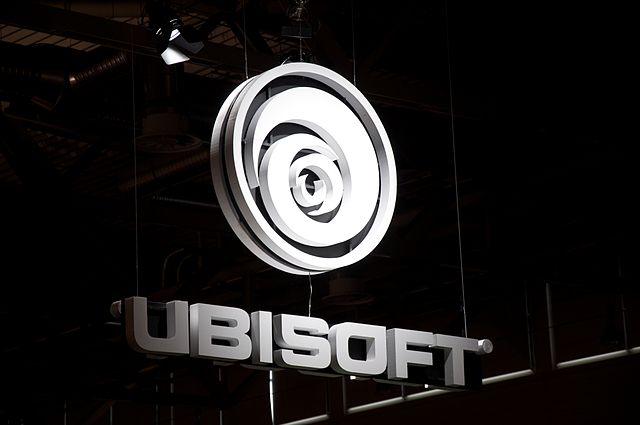by Chris Menahan, Information Liberation:
 Ubisoft, the company behind the Assassin’s Creed and Rainbow Six franchises, has not only partnered with the Anti-Defamation League to fight “hate” in gaming but is also now working with British police to jail gamers for their speech.
Ubisoft, the company behind the Assassin’s Creed and Rainbow Six franchises, has not only partnered with the Anti-Defamation League to fight “hate” in gaming but is also now working with British police to jail gamers for their speech.
British state media is reporting on the news as a great new innovation.
From BBC, “Toxic gaming tackled by Ubisoft’s unique police alert system”:
TRUTH LIVES on at https://sgtreport.tv/
Rape jokes, racism, bullying – if you’ve picked up a controller, or scrolled a mouse, to dabble in some online gaming then you’ve likely come across plenty.
The gaming industry, like others where people interact online, has been trying to figure out how to get to grips with behaviour like this for years.
Ubisoft, makers of major franchises like Assassin’s Creed and Rainbow Six, has now signed a first-of-its-kind deal with police to try and tackle the issue for its players.
The hope is for this agreement to start a conversation within the industry and see others follow suit.
Working with police
Online gaming is a joyful experience for millions of people every day.
It’s a space where friendships are forged and memorable experienced shared. During the pandemic online games were a saviour for many people’s mental health. However its dark side is also plain to see. Abusive behaviour, deaths threats and grooming – can be found in online gaming spaces.
“We want to be on the right side of history,” says Damien Glorieux a senior director of the Newcastle-based Ubisoft Customer Relationship Centre.
It’s here, and at four other locations around the world, that staff monitor how players of Ubisoft games are getting on – responding to requests for help and actively getting involved with the communities that have evolved around their titles. They deal with everything from purchasing issues to online toxicity.
Other companies have similar set-ups, but what’s unique here is the involvement of local law enforcement.
The deal between the company and Northumbria Police works in two parts.
Firstly, it sees specialist officers share their knowledge and expertise on harmful online interactions with the 200-strong team working at the centre in Newcastle, who then apply that training to their daily work.
Secondly, an agreement is in place so that in extreme cases, where there is a threat to life or potential serious harm spotted, staff can fast track the information to police.
They will then decide whether or not to act.
Glorieux explains to BBC News: “We have millions of players, and tens of millions of interactions – so how can we spot incidents?
“It is daunting, but at the same time it is very important, which is why we wanted to sign this deal and try to make things right .
“We wanted to focus on the most extreme cases, make sure we do the right thing there because it gives us a solid foundation to build the rest of our work around.”
Less than 0.01% of cases that the centre deals with end up requiring police intervention.
That works out as roughly a handful of cases a month. Most of the time, accounts will be temporarily banned or permanently closed if players have breached a code of conduct.
Staff in Newcastle can also recommend the company start legal proceedings in some instances.
‘Threat to life’
Andrew Holliday and his team deal with the cases that get close to, or reach, the threshold for police intervention: “This isn’t just a gaming problem, it’s is an internet problem,” he begins.
“There’s a real appetite to make the whole ecosystem a better place.
“What we’re working on closely with police on is triaging, you know, where we look at a case and decide – ‘right is this is one we can deal with in-house? Or is this something we need to pass on?'”
Gaming is global and some of the cases seen by staff here cross national borders.
Holliday tells us about a recent case in Norway, saying: “Things were said and behaviours displayed that hit our threshold for intervention. There was a threat to life or serious harm.
“The agreement with Northumbria Police meant that after we flagged it, even though it wasn’t a UK citizen – they were able to get Norwegian authorities involved.
“It was a lot quicker, more efficient and safer than trying to do it as a private citizen.”
Some of the staff here argue that the games industry has shied away from talking about the reality of online play for too long. They say it needs to be more open and proactive in talking about the steps being taken to tackle unpleasant, dangerous or threatening behaviour.
For Northumbria Police, Detective Chief Superintendent Deborah Alderson has been leading the work with Ubisoft on this agreement.
She argues that policing “is about prioritising protecting the vulnerable”.
“That means all of our communities not just the ones that we see in person, but our online communities as well,” she adds.
“Policing changes continually, demands evolve and we have different challenges all the time – our job is to evolve with it.”
If you are a parent, Ubisoft games are now a threat to your children’s future.
If your kid tells someone he wants to “kill them” in game they could report them to the police and hand all their private info over to authorities, even if they’re in another country.
The solution to in-game “toxicity” for all time has been the mute button and/or growing a thick skin. The notion that Ubisoft would call the police on their users is an absolute disgrace.
Ubisoft partnered with the pro-censorship Anti-Defamation League in 2020 to fight so-called “hate speech” and “toxicity” in gaming.
Read More @ InformationLiberation.com





